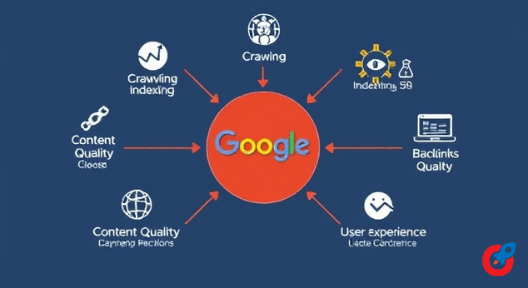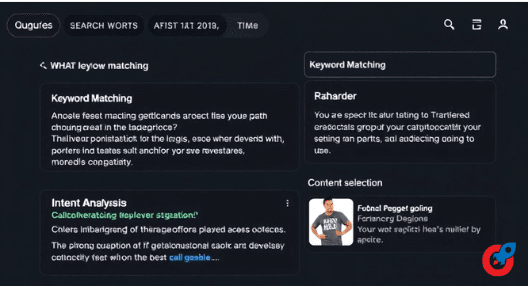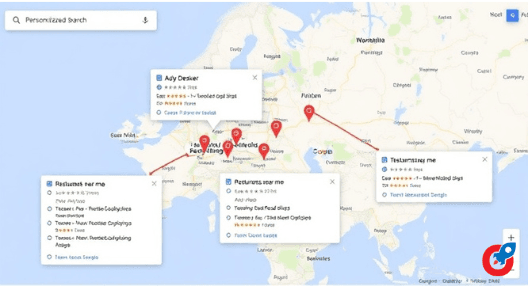SEO Power Play: Chapter 1.2 – SEO Fundamental
Search engines are the unsung heroes of the internet, making it possible for us to find anything we need with just a few keystrokes. From searching for the best pizza restaurant in town to looking for the latest scientific breakthroughs, search engines are integral to our daily online experience. But how exactly do they work? The answer lies in the combination of complex processes and sophisticated search engine and algorithms. This article is the 5th installment of our series “SEO Power Play“, where we break down key SEO concepts to help you improve your online presence.
In this article, we’ll explore what search engines are, how they operate, and the algorithms that power them. You’ll learn how search engines use these algorithms to deliver the most relevant information to your search queries. So, let’s dive in and break down the fascinating world of search engines and algorithms.
Table of Contents
What Is a Search Engine?
A search engine is a tool that helps users find information on the internet. It’s a program designed to index the web and display results when someone types in a search query. Popular search engines like Google, Bing, and Yahoo use crawlers, also called spiders or bots, to explore and collect data from websites. These crawlers look at the text, images, videos, and links on a page to understand what it’s about. When a user types in a query, the search engine processes that information and uses its algorithms to present the most relevant results.
Think of a search engine as a massive library with billions of books. But instead of physically browsing the shelves, you can instantly ask for any book or piece of information, and the search engine will provide you with the most relevant results based on your query. Without search engines, finding specific websites or content would be incredibly time-consuming.
The Role of Algorithms in Search Engines
Algorithms are the backbone of search engines. They are complex sets of instructions or rules that tell a search engine how to process, rank, and display the information it retrieves. These search engine and algorithms are designed to deliver the best possible results to users based on their queries.
For example, when you search for “best smartphone 2024,” the search engine uses its algorithm to decide which web pages or articles to show you. It looks at many factors, such as the relevance of the page, how often the page is updated, the quality of the content, and whether the page is linked to from other reputable sources.
Search engines use different algorithms to ensure the information is organized and displayed in a way that matches what you’re looking for. These algorithms are not static; they evolve over time to improve the quality of results and adapt to new trends, technologies, and user needs. Understanding how search engines use these algorithms can help us appreciate their complexity and the role they play in our online experience.
Key Components of Search Engine Algorithms

To understand how search engine and algorithms work, let’s look at the key components they use to rank and display search results:
1. Crawling and Indexing
Before a search engine can deliver results, it needs to crawl the web. Crawling refers to the process where search engine bots visit websites and gather information. These bots follow links from one page to another, collecting data along the way. They index the content they find, which means they store it in a giant database.
When you search for something, the search engine doesn’t have to search the entire web in real-time. Instead, it retrieves results from its index, which is a snapshot of the web as it exists at that moment. The quality of crawling and indexing determines how well the search engine can understand and categorize the information on the web.
For more details on crawling and indexing, you can read this Google Search Central article.
2. Relevance

Once the search engine has crawled and indexed web pages, it needs to determine how relevant each page is to the search query. Relevance is determined based on several factors, including:
- Keyword Matching: Search engines look for keywords in the search query and match them to content on web pages. The closer the keyword matches, the more relevant the page is considered.
- User Intent: Search engines have become much better at understanding the intent behind a user’s query. For example, if you search for “buy shoes,” the search engine will prioritize pages that sell shoes over pages about shoe manufacturing.
Algorithms are designed to understand not just the exact wording of a search query, but also the context and meaning behind it. This helps search engines provide more accurate and useful results.
You can learn more about how search engines interpret user intent in this Search Engine Journal article.
3. Quality of Content
Quality content is crucial to a search engine’s algorithm. A search engine favors web pages that contain high-quality, original, and valuable content. The more useful the content is to users, the higher the chances of it being ranked highly.
There are several aspects of content quality that search engines evaluate, including:
- Depth and Thoroughness: Well-researched, comprehensive articles tend to rank higher than shallow or poorly written content.
- Credibility: Search engines often favor content from authoritative and trustworthy sources. If a page contains credible references or is written by an expert in the field, it’s likely to rank better.
- Readability: Content that is easy to read and understand is more likely to be favored by search engines. This includes using clear language, proper grammar, and good formatting.
For more on how search engines assess content quality, check out this article by Moz.
4. Backlinks

Backlinks are links from other websites pointing to a particular page. Search engines view backlinks as a sign of trust and authority. The more high-quality backlinks a page has, the more likely it is to rank highly in search results.
Backlinks act like votes of confidence from other sites, suggesting that the content is valuable and worth referencing. However, not all backlinks are equal. A backlink from a reputable, high-authority site is far more valuable than one from a random blog.
Learn more about backlinks in SEO from this Backlinko guide.
5. User Experience (UX)
User experience is a critical factor in determining search rankings. If a website is hard to navigate or takes too long to load, users will leave quickly. Search engines recognize these signals and may lower the ranking of pages that provide a poor user experience.
Some aspects of user experience that affect rankings include:
- Page Load Speed: Websites that load quickly provide a better user experience and are favored by search engines.
- Mobile Friendliness: With the rise of mobile device usage, search engines prioritize mobile-friendly websites that offer a smooth experience on smartphones and tablets.
- Interactive Elements: Engaging, interactive features like videos, infographics, and user-generated content can enhance the overall experience and improve rankings.
Google offers valuable insights on user experience and page speed in this Google Web Vitals guide.
6. Freshness of Content
Search engines also prioritize fresh and up-to-date content. This is especially important for certain types of searches, like news, trends, or products. For example, when you search for “latest iPhone release,” the search engine wants to show you the most recent information, not outdated articles.
This is why search engines constantly update their algorithms to prioritize new, relevant content. Websites that regularly update their content and keep it fresh have a better chance of ranking higher.
Learn more about the importance of fresh content from Neil Patel.
7. Location and Personalization

Search engines take into account a user’s location when delivering results. If you search for “restaurants near me,” the search engine will show you results based on your geographic location.
Additionally, search engines personalize results based on a user’s search history, preferences, and previous interactions with websites. This makes search results more tailored and relevant to the individual user.
Learn more about location-based search and personalization at Google Search Central.
How Search Engine Algorithms Evolve
Search engines and algorithms are constantly evolving. Over time, they become more sophisticated, incorporating machine learning and artificial intelligence to better understand user behavior and improve the quality of results. For example, Google’s RankBrain algorithm uses AI to better interpret ambiguous search queries and match them with relevant content.
Search engine companies, especially Google, regularly update their algorithms to maintain the quality of search results and ensure that users are getting the most relevant, high-quality information. These updates are often shrouded in secrecy, with only general details about the changes being disclosed. Major updates, like Google’s Panda, Penguin, and Hummingbird updates, have had a significant impact on how websites are ranked.
Why Algorithms Matter
Understanding search engine and algorithms is crucial for anyone who manages a website or creates online content. By knowing what search engines prioritize, you can optimize your content to rank better and reach a larger audience. This process is called Search Engine Optimization (SEO).
SEO involves various strategies, including keyword research, content creation, building backlinks, and improving website performance, all designed to make your site more visible to search engines. In turn, your content has a higher chance of appearing on the first page of search results, where most
users tend to click.
You can learn about SEO and its importance from this Moz SEO guide.
Conclusion
Search engines and algorithms are the backbone of the internet, enabling us to navigate and find the information we need. They rely on complex algorithms to determine the relevance, quality, and authority of websites and pages. By understanding how these algorithms work, you can make smarter decisions about how to create content and optimize your website to be more discoverable.
As the internet continues to grow, search engines and algorithms will only become more advanced. Staying informed about these changes is key to keeping up with the rapidly evolving digital landscape. Whether you’re a casual user or someone trying to improve your online presence, understanding search engines and algorithms can help you make the most out of your online experience.

